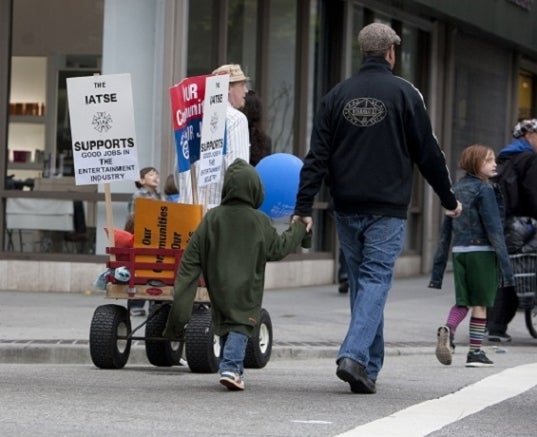Headline News
Low Wages Are Influencing Family Planning

The American economy’s middling recovery since the end of the Great Recession has left many workers struggling. Although employment has rebounded, wages have not and formerly middle-class families have been forced to make difficult decisions. For some, that’s meant putting off having children.
The latest numbers released by U.S. Department of Health and Human Services showed that birthrates for those under 30 hit an all-time low in 2013, and many speculate that younger workers are waiting on starting a family because they can’t afford it. Part of the problem is that they can’t climb the career ladder because older workers aren’t retiring themselves due to their own financial issues.
A lack of upward mobility has been particularly acute for those aged 25-to-32 who don’t have a bachelor’s degree. A Pew Research Center survey done last year showed that while those with a four-year college degree or more made a median income of $45,500, those with an associate’s degree or some college made only $30,000 a year. High school graduates, meanwhile, earned even less — $28,000.
It’s expensive having kids. If you don’t know yourself, just ask someone who does. Between baby supplies, child care, education costs and health care, supporting children is a difficult chore if a parent doesn’t have the financial ability to do so. Unfortunately, more and more adults don’t.
There’s also the reality that kids coming from lower-income families will face challenges that children from more well-to-do backgrounds never will. These advantages stretch from the classroom to dinner table and make it that much harder for the next generation to succeed.
As we noted earlier this year, more than half of K-12 students in the public schools – 51 percent – received free or reduced lunch in 2013, the first time in at least 50 years so many kids have done so. That’s up from 32 percent in 1989. Those numbers threaten the nation’s economic prosperity going forward.
If lawmakers want to make this country more family-friendly, they are going to have to invest in its people. That means more infrastructure projects that will help both workers and businesses alike, and raising the minimum wage. Many states have already gotten the message that the wage floor needs to come up.
But workers can do something as well. Joining a union is a proven method to increase wages and brings workers into the middle class. The Bureau of Labor Statistics shows the median union worker makes $200 more a week. That’s real money, dollars desperately needed by families to provide a better life for their children.
The American Dream, which for many includes having a family, is being lost. People and politicians need to take steps to make sure that doesn’t happen.